Modern pre-school education is the first state form within which professional educational work with children is carried out.
Relevance
The sociocultural significance of preschool education is determined by the characteristics of age. So, the age of three to seven years is the most sensitive period, which is characterized by particularly rapid changes in the intellectual, social, physical, emotional and linguistic development of the child. Positive life experience and the basis for successful development, laid in preschool age, create the basis for the future comprehensive development of the child. This is the significance of preschool education.
Legal regulation of subsidiaries in the Russian Federation
In Russia, pre-school education is regulated by the federal law “On Education”, which entered into force in 2013. This document defines the forms and methods, the content and principles of preschool education (preschool education), as well as the expected socio-cultural and socio-state results of the program. The Federal Standard for Preschool Education (GEF DO) is a guideline for specialists of DOE, employees of the DO system, families, and the general public.
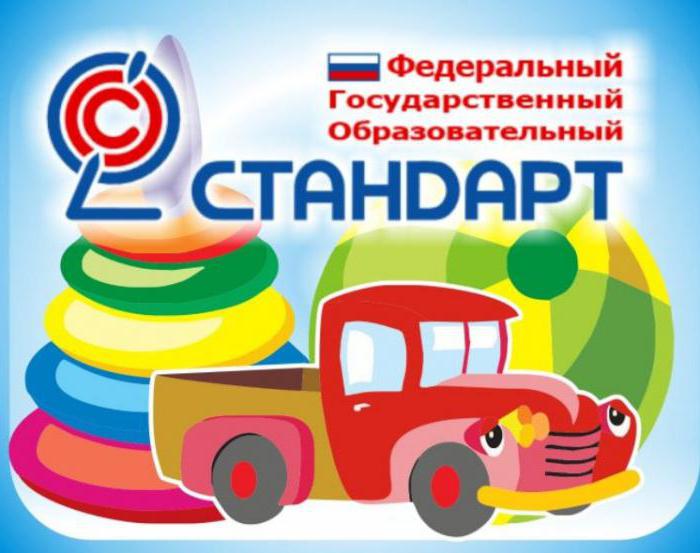
The main tasks of preschool education
The main tasks of the Federal State Educational Standard determines:
- Life protection and strengthening the psychological and physical health of children from 2 months to 7 years, the necessary correction of deficiencies in physical or psychological development.
- Preservation and support of the individuality of the pupil, the development of individual personality traits, the creative potential of each child.
- The formation of a common culture, the development of moral, aesthetic, physical, intellectual qualities of pupils, responsibility, independence and initiative.
- Formation of prerequisites for further successful educational activities in general educational institutions of the educational system.
- Ensuring the diversity and variability of the content of preschool education programs, methods and forms of education, taking into account the age characteristics of pupils, the needs and abilities of children.
- Providing opportunities for the development of each preschool child during childhood, regardless of gender, nation, language, place of residence, social status or other characteristics (including limited physical capabilities).
- Ensuring interdepartmental interaction, as well as the interaction of public and pedagogical associations.
- Interaction with families of pupils to ensure the development of a preschooler, providing the necessary assistance to the parents of a preschooler on issues of education and training.
The system of preschool education in the Russian Federation
The system of preschool education in Russia is the upbringing, development and training, supervision and rehabilitation of children from 2 months to 7 years. Preschool education is being carried out in preschool educational institutions (children's educational institutions), but these are not the only components of the system. There are still city and regional departments of preschool education.
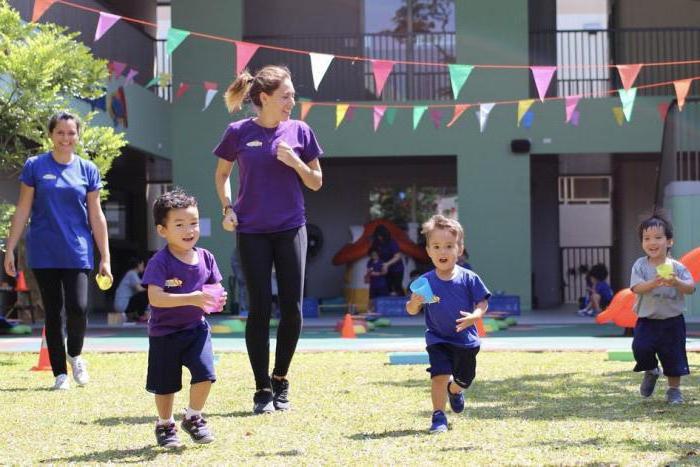
Today in the Russian Federation there are more than 45 thousand preschool educational institutions. The modern organization of preschool education is carried out through nurseries, kindergartens, centers of preschool education and other institutions. More details about pre-school institutions, principles and programs of pre-school education will be described below.
Character traits
Modern private and public preschool education in the Russian Federation has the main characteristic features. Firstly, the system provides a holistic character of the educational process, its upbringing and developmental character. This means that the DOE provides holistic medical, psychological and pedagogical support for the child.
In addition, it is at preschool age that a general culture begins to take shape, conditions for preserving and strengthening children's health, intellectual, moral, moral, physical, creative, aesthetic and personal qualities. The integrity of the system is also ensured by the continuity of preschool and primary school levels of education.
Secondly, in the institutions of the pre-school educational institution, a comfortable emotional environment and educational environment are provided that diversify the development of the child. Children can choose how to show independence in accordance with their own inclinations and interests. This is ensured by the variability and variety of educational programs for preschool education.
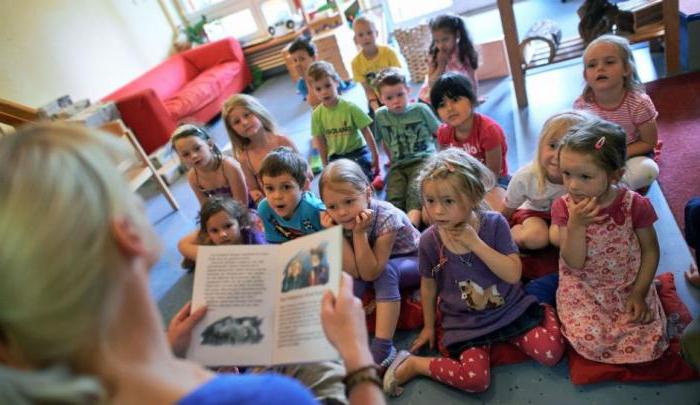
Estimated results of the implementation of state policy
It is expected that the introduction of GEF will significantly improve the educational space in the Russian Federation. General public policy is designed to ensure:
- The quality of the educational process. As a result of the implementation of GEF, it is expected to create a system that guarantees positive conditions for quality education at all levels (pre-school, primary, secondary and high school, additional, special, higher and so on). It is also planned to individualize the educational process due to the variability and variety of programs, means and teaching methods, to make Russian education competitive not only in content but also in the quality of educational services.
- Accessibility of education. Public and free pre-school, as well as basic education is provided to all citizens of the Russian Federation, regardless of nationality, gender, race, age, health, social affiliation, religion, beliefs, language, and other factors. Citizens of the Russian Federation can receive higher and secondary special education free of charge on a competitive basis.
- Decent pay for teachers. It is necessary to achieve a level of payment that would ensure the competitiveness of education in the labor market.
- Pension benefits. In the future, education workers should be guaranteed not only decent salaries, but also an adequate level of pension provision. Already today, employees with over 25 years of service have been granted the right to an additional allowance for length of service when continuing their teaching activities instead of a seniority pension.
- Social security of pupils, pupils, students and graduate students. Under this paragraph, children and youth who study in educational organizations are guaranteed life protection, ensuring health, and physical education. Students are provided with targeted material assistance (scholarships, allowances), employment assistance.
- Educational system financing. The budget for education should increase at a faster pace in relation to other public sectors, and funds should be spent more efficiently. Between individual Kindergartens, material support should be effectively distributed by local departments of preschool education.
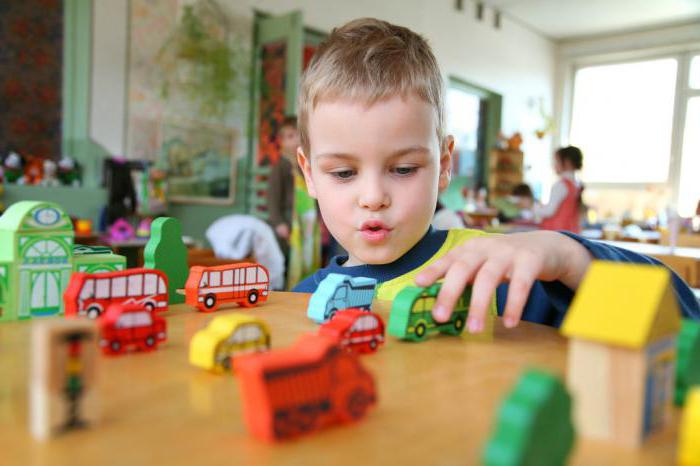
Preschool Education
The educational process within the framework of the DO system implements the DOE network. The most common institution of this type is kindergarten. In addition, in Russia there are other types of DOW:
- General developmental DOW. As a rule, in general developing kindergartens, one or more areas of upbringing (for example, intellectual, physical, or artistic) are given priority.
- Compensatory kindergartens. Such institutions are intended for children with any developmental disabilities.
- Dow care and recovery. In such preschool educational institutions, health-improving, sanitary-hygienic and preventive measures are carried out as a priority.
- Combined institutions. The composition of the combined kindergarten may include groups for children with various disabilities, wellness and general education groups.
- Centers of preschool development. This is a preschool educational institution, where equal attention is paid to health improvement, mental and physical development, correction of possible deviations of all pupils.
As part of pre-school education, 63% (5.8 million) of children of the corresponding age are brought up in Russia. At the same time, about a million more children are in the queue for a place in a preschool educational institution.
In addition to the usual types of Kindergarten, at present, groups of short-term stay of children have received development (it is interesting that parents choose these groups not instead of ordinary kindergartens, but in parallel with them), preschool groups based on schools or institutions of pre-school education, as well as teaching children within the family education.
The principles of the educational process
The main principles of preschool education in Russia are:
- comprehensive development of the child, corresponding to age, state of health, individual characteristics;
- the solution of educational problems in the process of joint activities of adults with children, as well as independent activities of pupils;
- interaction with families (parents should not be outside observers, but should take an active part in the implementation of the program);
- maximum approximation to a reasonable minimum in the educational process (this means that the tasks set must be implemented only on the necessary and sufficient material);
- ensuring the integrity of the educational process and so on.
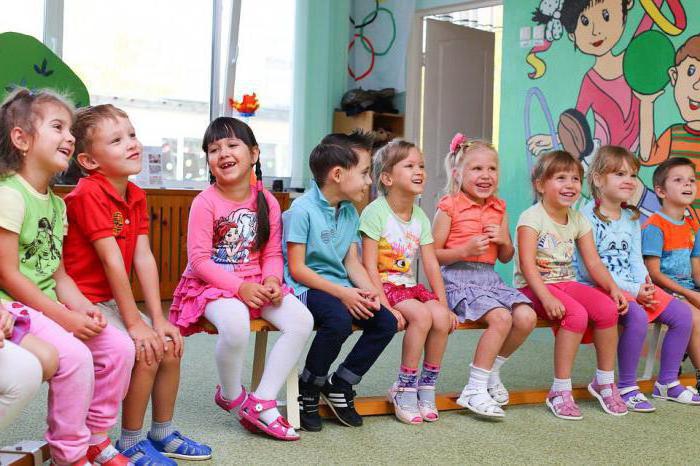
Directions for the development of the child in preschool
In the text of the Federal State Educational Standard, the concept of “occupation” is used, although preschool children perceive the world through a game, rather than occupation in the standard sense. So in this case the word “occupation” is used in the sense of “entertaining business”. Training should be through the game.
Within the framework of the DOW, the acquisition of valuable experience must be ensured in the following areas:
- Physical activity (sports, walking, climbing, jumping, riding a scooter, bicycle, running and other types of physical activity).
- Communicative activities (communication, interaction with other children, with adults, speaking skills).
- Cognition and research (research of objects of the surrounding world, experiments).
- Elementary labor activity (skills of self-service, domestic labor, labor in nature).
- Artistic perception (perception of fiction and oral folk art).
- Visual activity (drawing, application, modeling).
- Construction from various materials (construction from a designer, natural material, paper, construction of various models).
- Musical activity (playing children's musical instruments, musical rhythmic movements, singing, choreography).
The order of work of preschool institutions
Kindergartens, as a rule, work from 7-8 to 18-19 hours five days a week, which is close to the state working day. There are also round-the-clock preschool educational institutions, ten-hour and fourteen-hour working hours of kindergartens.
The number of children in groups is determined by the head of the preschool educational institution (based on the maximum occupancy). Groups for children from two months to a year should have a maximum of 10 pupils, from a year to three - 15, from three to seven - 20 children.
Admission to pre-school institutions and benefits
Since 2009, kindergartens have not been able to accept children on their own; for this, special commissions are formed to complete the pre-school education. This rule does not apply to private kindergartens.To be admitted to the pre-school educational institution, parents must provide the commission with a package of documents that includes the birth certificate of a child, the passport of one of the legal representatives, the child’s medical card, a document that confirms the benefit (if any). The commission makes a decision and issues a referral to kindergarten. Also, the commission will help with the choice of preschool education, taking into account the characteristics and state of the child’s health.
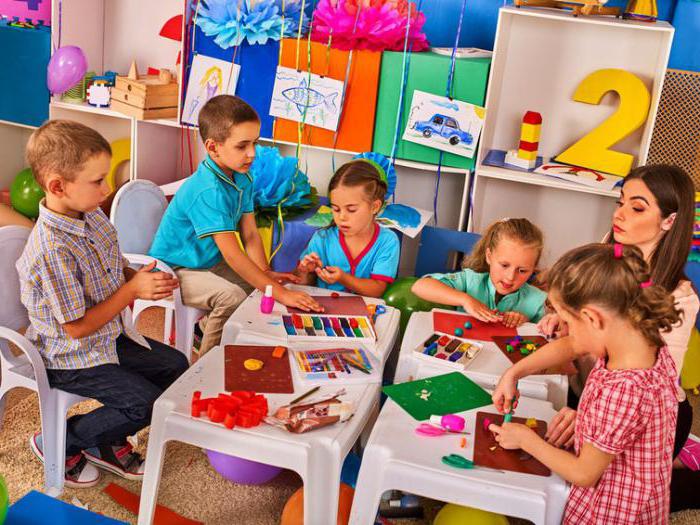
The right to an extraordinary admission to kindergartens are:
- orphans, adopted, adoptive children under guardianship;
- children whose parents in childhood were left without parental care;
- children of disabled citizens (if disability occurs as a result of the Chernobyl accident);
- children of judges, investigators, prosecutors.
The following persons have the right to priority reception at the preschool educational institution:
- children from large families;
- children of police officers, military;
- children, one of whose parents has a disability.
Children of single parents and teachers have a preferential right of admission. In addition, children whose siblings are already attending groups of this DOE can count on preemptive rights.
Problems of preschool education in the Russian Federation
Preschool education in Russia (despite all the actions of the state in this direction) is inaccessible to a significant part of the population. So, in groups more children are recruited than permissible; educational programs prepare students for school, and do not prefer games; fire safety and sanitation standards turn DOW into sterile, faceless boxes. Partially, private kindergartens can solve problems.
Also, preschool education in Russia is characterized by a lack of teaching staff. At the moment, many DOWs employ people who are prepared according to an outdated model or who have no pedagogical training at all. The social status of the profession remains low, the level of salaries of teachers is insufficient.
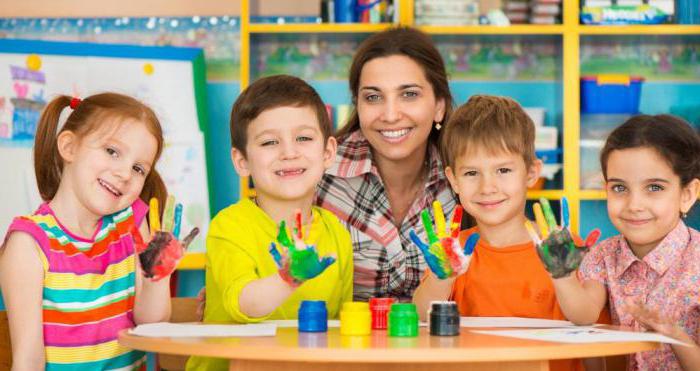
The main directions of the development of the system
The development goals of preschool education are related to the problems of Russian society. So, the strategic goals of education include:
- Introduction of modern educational programs.
- The transition to the conclusion of an effective contract with teachers and leaders of the DOE.
- The democratization of education.
- Preservation and strengthening of unity of educational space.
- Training and retraining of teaching staff.
- Education management reform and so on.
The prospect of reforming subsidiaries inspires hope for positive changes in this area.